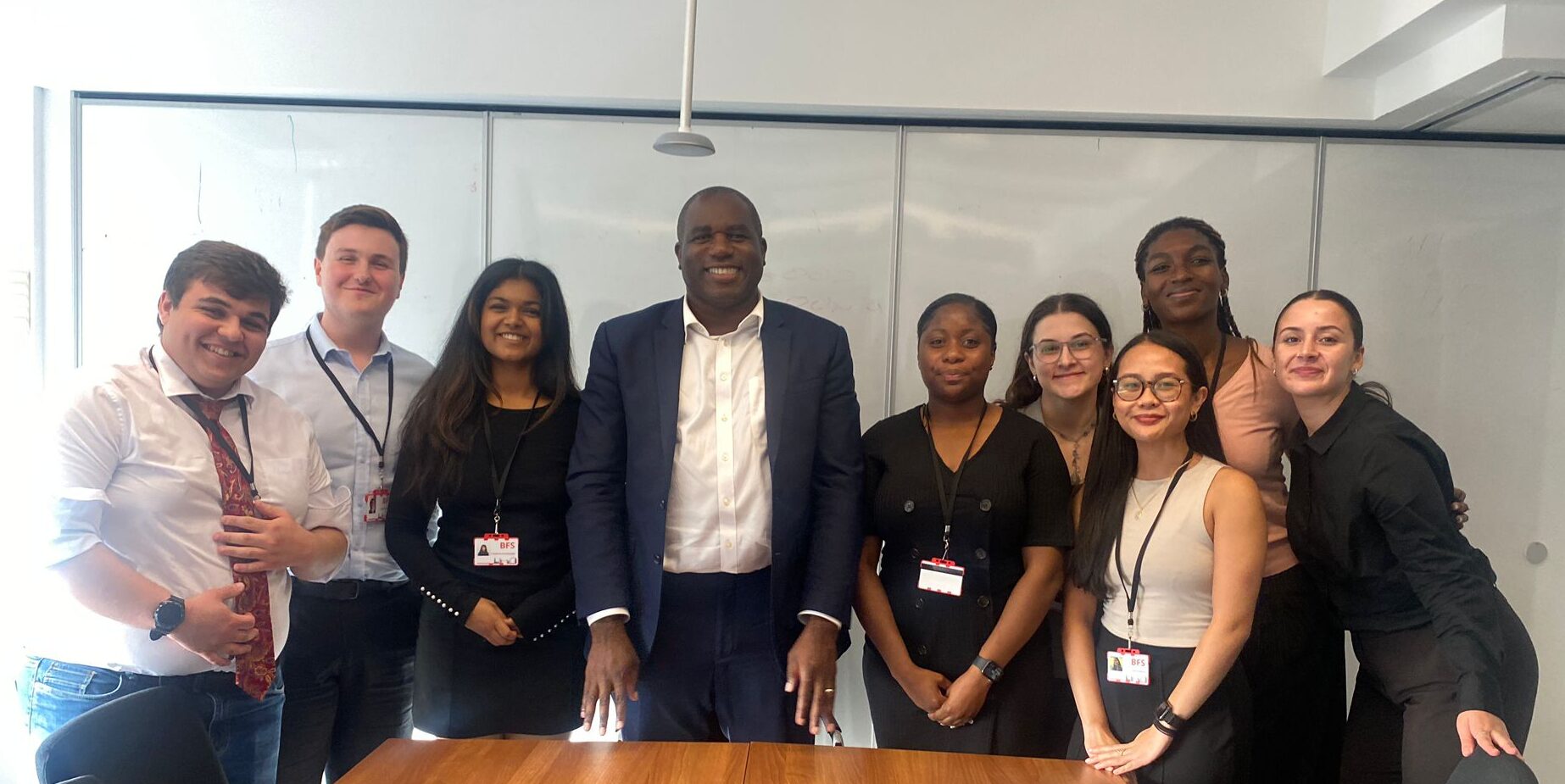“Patchwork is a loudhailer for the voices of underrepresented groups right across our islands and their Parliamentary Awards recognise the endeavours of individual MPs across the parties who are making efforts to get people from all walks of life engaged in politics.”
Charley Hasted is an alumnus of the Patchwork Foundation. In addition to working for the NHS in London as an Emergency Services Worker they hold a number of positions in political and non-profit organisations, mainly based on LGBT+ and Disability activism. They have stood in both local and general elections and were the first Trans masculine person to stand for local election in the UK and the first Trans PPC in Wales in 2017.
What was your journey into activism like?
I got sucked in at an early age as I was a carer for my mother. From the age of 8 I was volunteering at a group for blind people in an independent living centre and it just carried on from there. When I was a teenager, I redirected my school’s firewalls to pro-LGB support sites, at this time there was less of an emphasis on trans issues.
Getting involved in activism early on gave me a good understanding of different power structures. Even as a young person I knew exactly how local councils worked as I was fighting them on issues such as closing local libraries.
Fortunately, it seems like more and more people are listening to what young people have to say, they’re realising that lack of qualifications and the correct language should not stop someone having their say. I’ve done direct action, protests, petitions, lobbying, all sorts and there will always be people who want to listen to what young people have to say. It’s about finding those people.
What lessons were you taught when younger that still guide you?
The ability to listen and empathise is so important. To hear your opponents and know when their point is valid or when they are just trying to cause trouble. When I tried to introduce same-sex toilets at university I spent a whole year just listening to people – their concerns, thoughts, needs and eventually the proposal got passed with little disruption. Online media sites tried to get a story going at the time by interviewing students but had nothing to go on as we had spent so long taking time to listen and consider everyone.
Secondly that you need to be able to bring people on the journey with you. If you take the time to explain why things are needed the vast majority of people will be on your side. This also helps bring a diverse range of people to your cause, from those that can repeat messages and not get bored of their voice to those that offer emotional support. Any effective team needs a variety of people with different skillsets.
As a young person you were a supporter of the Socialist Workers Party but then made the switch to the Liberal Democrats, why?
Equality matters to me most, but you can’t force people to want equality. I realised that introducing laws and restrictions won’t make people more equal. That authoritative type of equality isn’t what I wanted, I wanted equality from a liberal approach. I also met a Lib Dem at a hustings who was the nicest person in the room and from the kindness he showed me I explored the party further and liked what I heard.
In 2011 you first ran for election for the Stoke on Trent Council and have since stood across the UK at different levels. What advice do you have for Patchworkers that are planning on running for elected office?
Get a good pair of shoes and a jacket as you will be spending a lot of time outside walking in all weathers. You can be so much more effective [as a campaigner] if you are comfortable. Also, you need to be able to talk to anyone, at any time, about anything. Don’t fudge answers however, if you don’t know what the other person is talking about you will get a lot more respect for being honest and saying you will research and find out the answer for them. That is as long as you actually do it.
How do you cope with setbacks and the pressures of campaigning?
For a long time, and still now, I suffer from imposter syndrome. I have come to realise, however, that if you are doing activism for the right reasons, even if you don’t value your own work you will have made even a small bit of positive difference. You often won’t realise the impact your actions have made until much later, if at all.
I would also say find people who can help you. Get your support network around you as no one can do it on their own. You shouldn’t be expected to have the complete picture either, find that influential person that will listen to your point of view and work with them to make change.
Hopefully, for young people making that change is getting easier. When I was organising student marches we really struggled to get people involved but recently with climate change and exam results protests young people have made such a difference through their protests.
You have held a number of positions with the NUS, Young Liberals and Stonewall. How do you get your voice across within a large team?
Realise it is not about you all the time, try and figure out when your voice is actually needed. Find out who else is on your team and what expertise they have as they may know more than you about a certain subject. This also helps when allocating work, people have different work patterns and lifestyles and so may not be able to turn around work as quickly as it is needed.
To make a group more efficient I find planning is key. What are your timeframes? What does the end product look like? Work backwards from the final result and make sure everyone knows the deadlines, communication is so important.
Through a long history of activism, what drives you to continue?
I want to be jealous of the people who come after me. For example, currently I am jealous of the Trans youth support networks that I wish I had when I was younger. People that are involved in equality and diversity are unique as they want their work to stop existing. Hopefully one day there will be no need for a fight for equality as it already exists. I hope what I have done is left something for others to build upon.
How has your more recent advocacy in Trans rights been going?
It has been amazing working cross-party to a high level on trans issues, seeing what politics can be when you are working with goodwill, so it’s a shame that we seemed to have stumbled in terms of Trans rights.
Not having to have a medical diagnosis is vitally important for people like me and the wait for a first appointment at a gender identity clinic can reach 5 years. You also need to have proof that you have been working in your new gender for at least 2 years, how do you do this if you cannot afford it or are unemployed? Even then the decision that someone can legally change their gender is based on a panel they will never meet and one which they have no right of appeal. Finally, as a non-binary person I have no legal recognition so every time I fill out an official form I feel like I’m committing fraud by selecting a box.
You had a lot of experience in bringing about change prior to joining Patchwork, but what one new thing did Patchwork teach you?
Confidence! I never would have had the confidence to run as an MP in the 2017 General Election without Patchwork. I don’t recommend commuting across the country for campaigning however as I spent far too long sleeping on coaches, try and find a base and stay there when you can.
Patchwork also gave me my peak Lib Dem moment. During my Number 10 visit I was admiring the portraits of previous Prime Ministers and when I saw David Lloyd George. I was so busy staring I missed a step, tripped over my own walking stick and nearly went face first into Winston Churchill.
Finally, what advice would you give to yourself when just starting out in activism?
Don’t shut up. If you can see something is wrong then say something, if it is important to you then say something. If you keep on talking about what you think is wrong, others who think the same will hear this and come and help you.
To get in contact with Charley drop Patchwork a message or follow them on Twitter @CharleyHasted
Stay updated
Join our mailing list to stay up to date with all the latest!
Latest news
Testimonials


